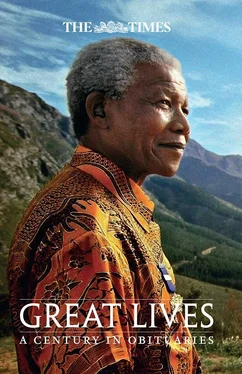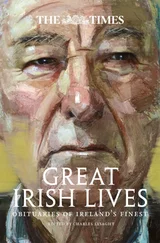The Guerilla War
When Lord Roberts handed over the command to Kitchener in November, 1900, it was generally supposed that the war was at an end. All the organized forces of the Boers had been dispersed, and nearly all the chief towns were in British occupation. But under the guidance of enterprising leaders the spirit of resistance rose superior to misfortune. On all sides guerilla bands sprang up and began a war of raids, ambuscades, and surprises with which a regular army is rarely fitted to cope on equal terms. There were still about 60,000 Boers, foreigners, and rebels in the field, and although they were not all, nor always, engaged in fighting, a fairly accountable force could usually be collected for any specific enterprise by a local leader of note. Their resolution, their field-craft, and the help of every kind which they drew from the countryside made them most formidable enemies. Their subjugation, in view of the wide area over which they operated, was one of the most arduous tasks that has ever been entrusted to a British commander. Of the 210,000 men under Kitchener more than half were disseminated along the railways and in isolated garrisons. The new commander did not possess that numerous force of efficient mounted troops which was indispensable to bring the war to a conclusion.
Into the active conduct of the war, and into the reorganization of his army, Kitchener threw the whole weight of his immense personal influence. He instilled a new spirit into the war when he dashed off to Bloemfontein to hurry along columns for the pursuit of De Wet, and he left no stone unturned to improve the quality of his army. He raided clubs, hotels, and rest camps to beat up loiterers, appealed to all parts of the Empire for mounted men, stimulated the purchase of remounts, raised mounted men from his infantry and artillery, created a new defence force in Cape Colony, and in every possible way prepared to meet like with like and to impart a new spirit of energy and enterprise into the conduct of the war.
The first months of 1901 were marked by the invasion of Cape Colony by De Wet and other leaders, and by a great driving operation in the Eastern Transvaal under French. Both movements failed to entrap the main Boer forces engaged, but the active conduct of the operations, and the losses suffered by the Boers, began that process of moral and material attrition by which the war was ultimately brought to an end.
The winter campaign from May to September, 1901, eliminated about 9,000 Boer fighters, leaving 35,000 still in the field, but this number was much under-estimated at the time. With the spring rains there was a general renewal of the war on the part of the burghers, their leading idea consisting of diversions in Cape Colony and Natal. Severe fighting followed in many places. As the months wore on both the offensive and the defensive virtues of Kitchener’s system became more striking. The blockhouse lines became more solid and began to extend over fixed areas of the country. Strengthened by infantry, they flanked the great drives, and became the nets into which the Boer commandos were driven. There came at last a dawning of perception in the Boer mind that further resistance, however honourable, was hopeless.
The Peace
An offer of mediation made by the Netherlands Government on January 25, 1902, gave an excuse to both sides for ending the war. Though this offer was not accepted, a copy of the correspondence which followed it was transmitted to the Transvaal Government on March 7, without any covering letter, explanation, or suggestion. It produced an immediate effect. President Schalk Burger asked for a safe-conduct for himself and others to enable them to meet the Free State Government to discuss terms, and a meeting took place in Kitchener’s house on April 12. A Convention at Vereeniging was arranged. Sixty Boer delegates there assembled on May 15. Terms were at last agreed to by the delegates in concert with Lord Kitchener and Lord Milner, and, after revision by the British Government, were finally accepted by 54 votes to 6 on May 31, only half an hour before the expiry of the time of grace.
Returning once more to England Kitchener was made a Viscount, and received the Order of Merit, the thanks of both Houses of Parliament, and a substantial grant of public money. Once again he was not allowed to enjoy for long his new honours in peace, and was appointed Commander-in-Chief in India in the same year that he had returned home.
Work in India
At the time when Kitchener reached India, the army in India, though possessing many war-like qualities, was suffering from serious organic and administrative defects. It did not present the offensive value which might have been expected from its numbers and its cost. It did not exploit all the martial races available for its service. The distribution of the troops had not been altered to correspond with new railway facilities and a changed strategical situation. It was not self-supporting in material of war, and the armament of the troops was behind the times. There was scarcely a single military requisite that had been completely supplied to the four poorly-organized divisions which formed the inadequate field army, and scarcely any provision had been made for maintaining the army in the field. The content of the Indian Army had not been inspired by adequate provision for its material well-being. Lastly, the higher administration of the Army was under a system of dual control, which produced conflicts between the responsibility pertaining to the Commander-in-Chief and the power which rested in the Military Department.
The history of Kitchener’s seven years in India is a history of sustained and in the end almost completely successful efforts to overcome these serious defects. He did not act in a hurry. He began by making extended tours over India, including a journey of 1,500 miles on horseback and on foot round the North-West frontier, and he consulted every officer of eminence and experience in India. Lord Curzon, who had urged Kitchener’s appointment, was heartily with him in his plans for Army reform up to the unfortunate moment when a difference of opinion arose between Viceroy and Commander-in-Chief on the question of the Military Department and the higher administration of the Army. The difference gave rise at last to a serious crisis. Kitchener fought his own battle alone and unsupported in the Governor-General’s Council, and the decision of Mr Balfour’s Government and the settlement finally made by Lord Morley were in his favour. Mr Brodrick’s dispatch of May 31, 1905, placed the Commander-in-Chief in India in charge of a newly-named Army Department, which became in the end invested with most of the rights and duties of the old Military Department, but large powers were reserved for the Secretary to the Army Department. Lord Curzon resigned in 1905.
Kitchener’s projects for the reform of the Army had begun to take shape in 1904. On October 28 of that year an Army Order divided the country into nine territorial divisional areas, and arranged the forces contained in them into nine divisions and three independent brigades, exclusive of Burma and Aden. The plan was to redistribute the troops according to the requirements of the defence of India, to train all arms together at suitable centres, and to promote decentralization of work and devolution of authority. Kitchener proposed to secure thorough training for war in recognized war formations, to enable the whole of the nine divisions to take the field in a high state of efficiency, to expand the reserve which would maintain them in the field, and to have behind them sufficient troops to support the civil power with garrisons and mobile columns. In May, 1907, another Army Order created a Northern and a Southern Army. The commanders of these Armies became inspectors whose duty was to ensure uniformity of training and discipline. The administrative work was delegated to officers commanding divisions.
Читать дальше












